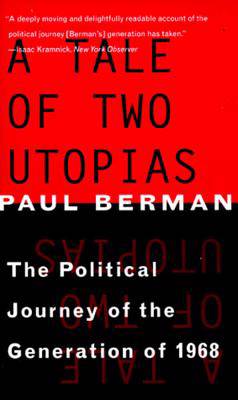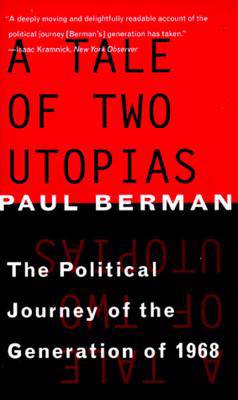
- Afhalen na 1 uur in een winkel met voorraad
- Gratis thuislevering in België vanaf € 30
- Ruim aanbod met 7 miljoen producten
- Afhalen na 1 uur in een winkel met voorraad
- Gratis thuislevering in België vanaf € 30
- Ruim aanbod met 7 miljoen producten
Zoeken
Tale of Two Utopias
The Political Journey of the Generation of 1968 (Revised)
Paul Berman
Paperback | Engels
€ 41,45
+ 82 punten
Omschrijving
The ideological passions that, along with critical acclaim, greeted the publication of Paul Berman's A Tale of Two Utopias showed how persistent are some of the battle lines drawn in the tumultuous years around 1968.
A Tale of Two Utopias recounts "in clean, clear, often funny style" (Washington Post) four episodes in the history of a generation: the worldwide student radicalism of the years around 1968; the birth of gay liberation and modern identity politics; the anti-Communist trajectory of the '68ers in the Eastern bloc; and the ideals and self-criticism of thinkers in America and in France who lived through these events and debated their meaning.
Praised for both "sheer intellectual high-spiritedness" (Houston Chronicle) and "the same sensitivity to the moral needs of the participants, and the same lucid evaluative balance, as Edmund Wilson's accounts of earlier periods" (philosopher Richard Rorty), A Tale of Two Utopias firmly establishes Berman as "one of America's leading social critics" (New Leader) and "one of our most gifted essayists" (Boston Globe).
A Tale of Two Utopias recounts "in clean, clear, often funny style" (Washington Post) four episodes in the history of a generation: the worldwide student radicalism of the years around 1968; the birth of gay liberation and modern identity politics; the anti-Communist trajectory of the '68ers in the Eastern bloc; and the ideals and self-criticism of thinkers in America and in France who lived through these events and debated their meaning.
Praised for both "sheer intellectual high-spiritedness" (Houston Chronicle) and "the same sensitivity to the moral needs of the participants, and the same lucid evaluative balance, as Edmund Wilson's accounts of earlier periods" (philosopher Richard Rorty), A Tale of Two Utopias firmly establishes Berman as "one of America's leading social critics" (New Leader) and "one of our most gifted essayists" (Boston Globe).
Specificaties
Betrokkenen
- Auteur(s):
- Uitgeverij:
Inhoud
- Aantal bladzijden:
- 352
- Taal:
- Engels
Eigenschappen
- Productcode (EAN):
- 9780393316759
- Verschijningsdatum:
- 1/10/1997
- Uitvoering:
- Paperback
- Formaat:
- Trade paperback (VS)
- Afmetingen:
- 117 mm x 187 mm
- Gewicht:
- 249 g

Alleen bij Standaard Boekhandel
+ 82 punten op je klantenkaart van Standaard Boekhandel
Beoordelingen
We publiceren alleen reviews die voldoen aan de voorwaarden voor reviews. Bekijk onze voorwaarden voor reviews.







